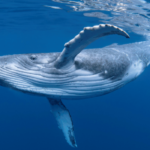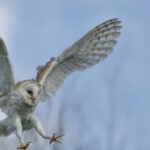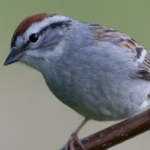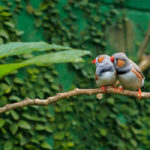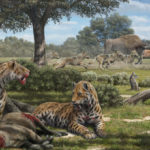News & Events
Graduate student studies lifestyle-associated diseases as evolutionary mismatch
Feb. 1, 2022—By: Andy Flick, Evolutionary Studies Initiative scientific coordinator Audrey Arner, a first-year Ph.D. student in Dr. Amanda Lea’s lab, recently earned a pilot research grant from the Evolutionary Studies Initiative (ESI) to study the evolutionary mismatch hypothesis. Arner described evolutionary mismatch as, “the same allele that was beneficial in the ancestral environment could be detrimental...
Seven awards given in inaugural Evolutionary Studies Initiative pilot grant program
Jan. 24, 2022—By Andy Flick, Evolutionary Studies Initiative scientific coordinator The Evolutionary Studies Initiative (ESI) has awarded seven grants to researchers in the initiative. These grants will seed new projects and collaborations. We highlight a quick snapshot of the variable and exciting projects below – with links to full stories on three individual projects. ESI director, Cornelius...
Vanderbilt Researchers Combine Paleontology and Fluid Physics to Uncover Ediacaran Nurseries
Dec. 21, 2021—Knowing how life worked on Earth 550 million years ago can give perspective on how life could evolve on other planets. Geobiologist and Assistant Professor of Earth and Environmental Sciences Simon Darroch and postdoctoral researcher Brandt Gibson are working to figure that out. “At the broadest scale, understanding how, when, and why complex life evolved on this planet gives...
Imaging Technology Shows how Whales’ Sensory Systems have Evolved
Dec. 19, 2021—If you’ve ever had an ear infection that made you dizzy or unbalanced, the infection likely was affecting your vestibular complex—part of the intricate system of hard and soft tissues that make up the inner ear. Knowledge of this structure has been made possible through computed tomography scans—imaging technology that continues to shape our understanding...
Cohen Innovation Fund Supporting Two High-Risk, High-Reward Projects
Nov. 5, 2021—By Aaron Conley Houra Merrikh, professor of biochemistry, and Teru Nakagawa, associate professor of molecular physiology and biophysics, have both been selected to receive one-year research awards from the Stanley Cohen Innovation Fund. The awards will support groundbreaking and paradigm-shifting research, including Merrikh’s study of the molecular drivers of evolution that enables cancer to develop resistance to...
Fossil records help us understand the present and predict future ecosystems
Nov. 5, 2021—By Miquéla Thornton Due to a multitude of human-driven impacts, the Earth is experiencing a biodiversity crisis. It has been referred to as the Sixth Mass Extinction, and scientists are examining similar events in the planet’s geological past looking for clues in ancient ecosystems to help us solve present-day issues. Current events have produced dramatic changes in...
Darwin’s Magnificient Mystery and the Microbiome
Nov. 4, 2021—Darwin’s On the Origin of Species put forth a seminal and revolutionary thesis for the life sciences in 1859: Populations with a common ancestor evolve over time with enough change to become different species that no longer successfully interbreed. This process of descent with modification continues over time to produce lineages of new species. Darwin famously referred to the process of one species becoming two...
Vanderbilt National Fossil Day Event
Oct. 5, 2020—Vanderbilt National Fossil Day Event (https://www.youtube.com/watch?v=0LLoS5-2WB8) Note: This is a past event. You can watch the event at YouTube. Description: Vanderbilt’s Evolutionary Studies Initiative invites you to attend a virtual webinar. During the webinar, each paleontologists will discuss the fantastic creatures they study and how they became fascinated by fossils. The focus of the webinar...
Statement from @EvolutionVU Against Racism, discrimination, and injustice
Jun. 7, 2020—During a time wrought with economic, social, and health crises, we wish to reaffirm some of the core values that guide the actions of the Evolutionary Studies Initiative at Vanderbilt University. Our core values include trust, respect, compassion, and understanding. We commit to continuing to espouse these values. As a result, we do not tolerate...
New research on ‘endowment effect’ points to evolutionary roots of cognitive biases
Jun. 2, 2020—New research from may explain why we sometimes overvalue items we’ve acquired—to an irrational degree—irrespective of their market or sentimental value. This phenomenon is called the endowment effect, and researchers have long puzzled over why it occurs, and why the size of the effect can vary so much across items when it does. It’s important...
Vanderbilt lab develops app for analyzing crowd-sourced songbird recordings
Jun. 2, 2020—Amateur birders and citizen scientists will soon have a novel way to contribute to groundbreaking research. With a new app, created and shared by the team at laboratory of Nicole Creanza, Assistant Professor of Biological Sciences and @EvolutionVU member, researchers can better leverage crowdsourced fieldwork and audio recordings from bird enthusiasts to accelerate the progress...
New method reveals how differences in the genetic “instruction booklet” between humans and Neanderthals influenced traits
Oct. 8, 2019—When it comes to our differences from Neanderthals, most of what we know comes from comparing fossils. But fossils can only tell us about bones and not whole living organisms. That’s changing thanks to a new paper from graduate student Laura Colbran in the lab of Tony Capra, Associate Professor of Biological Sciences and @EvolutionVU...
High standards of female songbirds could be driving their mates to evolve
Sep. 8, 2019—Hearing longer love songs from songbirds in your backyard? Chalk it up to sexual preference – and high standards. New research on songbirds from graduate students Cristina Robinson and Kate Snyder in the lab of Nicole Creanza, Assistant Professor of Biological Sciences and Evolution@Vanderbilt member, suggests that females, who are choosing males with the most...
Rokas to lead budding cross-disciplinary collaboration on evolutionary studies
Aug. 15, 2019—The Vanderbilt Evolutionary Studies Initiative is now official! The Initiative seeks to position the university as a global leader in evolutionary studies by engaging a large group of scholars who share this research-based interest. The program will also provide students and the community multiple opportunities to learn about the role of evolutionary principles and approaches...
Intense look at La Brea Tar Pits explains why we have coyotes, not saber-toothed cats
Aug. 7, 2019—The La Brea Tar Pits are an one-of-a-kind fossil site in Los Angeles. The site contains fossils of predators that tried to eat horses, bison and camels stuck in the tar over the past 50,000 years and themselves became trapped, offering the best opportunity to understand Ice Age animals facing climate change. In the most...




